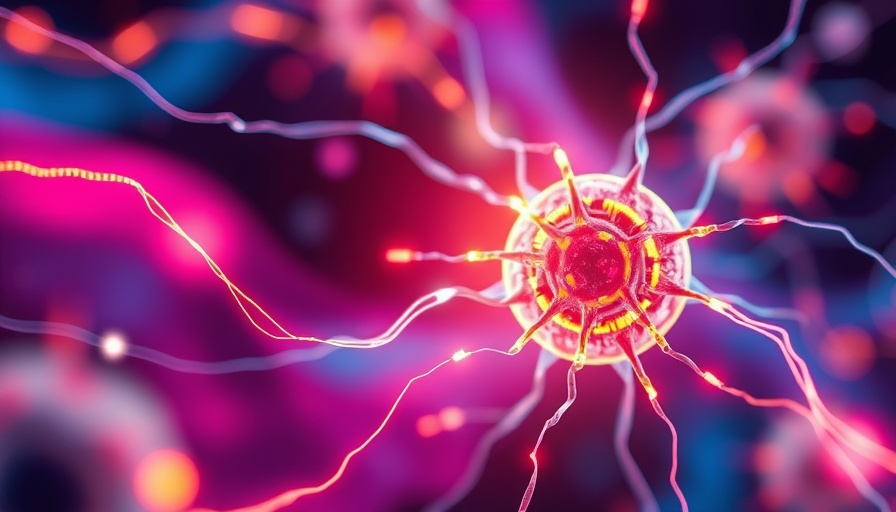
Understanding Glial Cells: The Unsung Heroes of the Brain
As we age, the importance of brain health cannot be overstated, and here, glial cells emerge as crucial players. While neurons often steal the spotlight in discussions about brain functionality, it's glial cells that form the supportive backbone of the brain's architecture. This category covers a variety of specialized cells, including astrocytes, oligodendrocytes, and microglia, which each have unique but critical roles in maintaining brain function. Recent reviews indicate that these cells begin to dysfunction with age, contributing to cognitive decline and neurodegenerative diseases, particularly in an area less explored — the cerebellum.
The Cerebellum: More Than Just Motor Control
Traditionally known for its role in motor control, the cerebellum is now recognized for its involvement in cognitive and integrative processes. Unfortunately, research into cerebellar aging is still burgeoning compared to studies focusing on the neocortex and hippocampus. Yet, evidence suggests that cerebellar glial cells may experience distinct changes as we age, highlighting a new area of interest for understanding brain health.
Aging Glial Cells: The Distinct Changes in the Cerebellum
The recent exploration of cerebellar glial function reveals specific signatures associated with aging. For instance, cerebellar astrocytes and microglia show notable differences compared to their counterparts in other brain regions, including altered immune responses and changes in spatial organization. While these glial cells experience remodeling, the cerebellum appears to maintain a degree of integrity during the aging process, possibly due to its organized architecture that supports functional adaptability. This resilience points to the potential for the cerebellum as a model for understanding healthy brain aging.
Potential Insights and Future Directions
Exploring how glial cells in the cerebellum adapt with age could unlock new avenues for therapeutic interventions aimed at promoting brain health. By identifying biomarkers linked to healthy brain aging, researchers may pave the way for treatments that enhance cognitive resilience. As we gain a deeper understanding of these cellular dynamics, the cerebellum may hold the key to maintaining mental agility well into older age, offering hope for enhanced quality of life.
Embracing a Holistic Approach to Aging
While our understanding of glial cell aging is still evolving, what remains clear is the importance of adopting a proactive stance toward maintaining brain health. Engaging in regular mental and physical exercises, along with a balanced diet rich in antioxidants, plays a significant role in promoting overall well-being. Consider implementing small lifestyle changes today that support your brain health and cognitive function as we age, because every step counts!
Let's work toward a future where we not only live longer but thrive in good health. Educating ourselves about the aging processes within our brains allows us to make informed choices that support our cognitive well-being.
 Add Row
Add Row  Add
Add 




Write A Comment